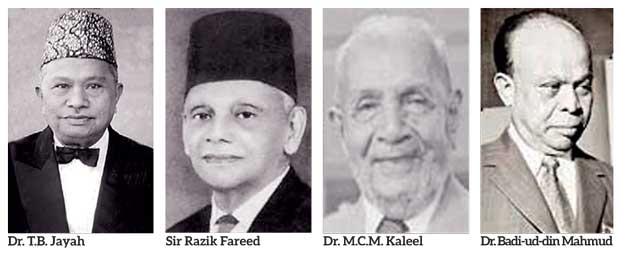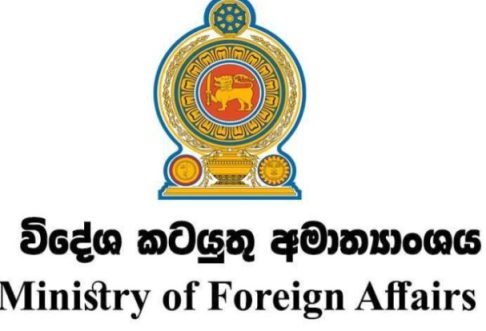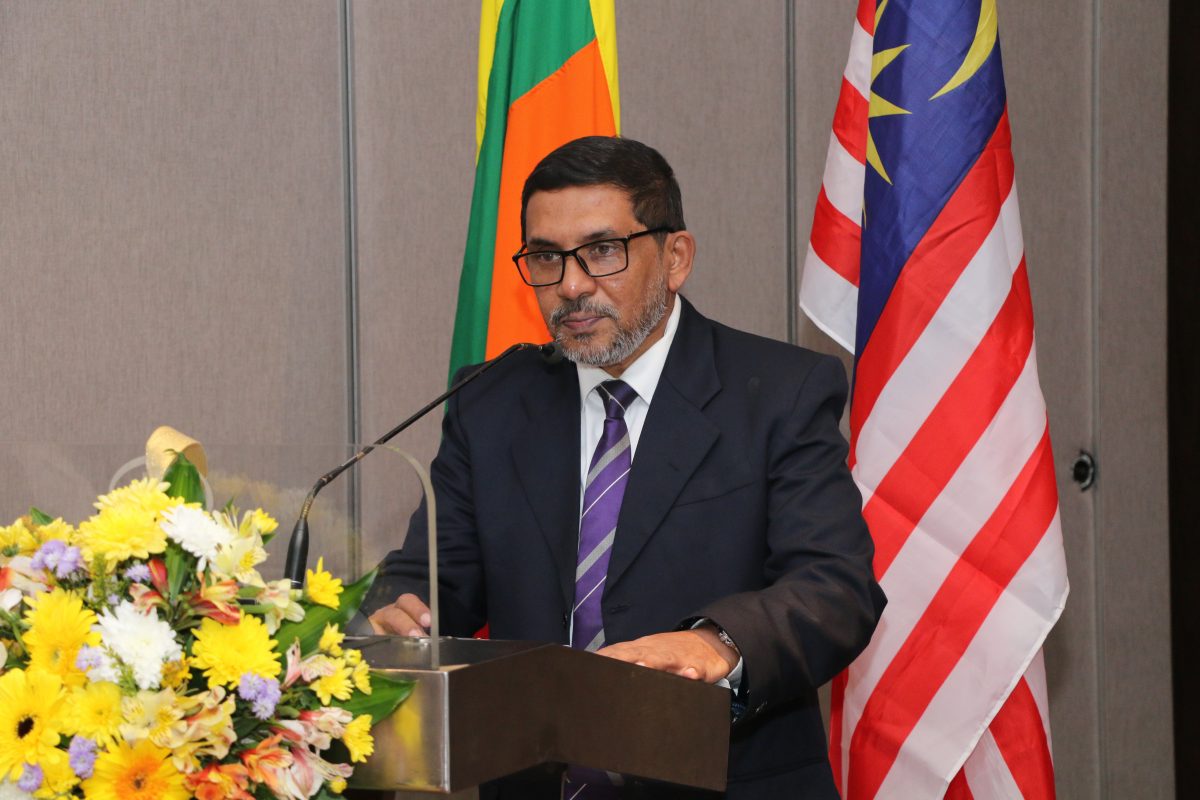Alas! It is a great and terrible world. – the Lama in Kipling’s Kim.
My purpose in this article is to argue that the West has done incalculable harm to Sri Lanka, though without any malevolent intent, through its over-indulgent attitude towards the LTTE. That attitude bred in the LTTE what might be called a victim syndrome which became a major factor – perhaps the decisive factor – in the continuance of the ethnic imbroglio beyond 1994, most certainly beyond the year 2000. Before proceeding further I must explain that the term “syndrome”, which used to be much in vogue in the media some decades ago, means a set of concurrent symptoms in disease.
The victim syndrome, in the sense that I am using the term, arises out of the noble impulse to sympathize with and support the perceived victim. Opposed to it is the ignoble propensity, far too widely current in Sri Lanka, to blame the victim. However, noble though support for the victim might be, it can have a deleterious impact on the psyche of the victim. He can come to have a sense of dependency on others, which can sap his will to act for himself in a responsible way. He can come to luxuriate in feelings of resentment, hatred, vengefulness, and when the opportunity at long last comes he can become the oppressor over other victims. All that can lead the victim to self-destruct.
Alas, I cannot claim any originality over the thesis that I am very broadly and very briefly setting out here. I came across it some years ago in a French book which at the time made so small an impact on my consciousness that I have forgotten both the title and the name of the author. I have since come to realize how that thesis is crucial to understanding why our ethnic imbroglio dragged on for so long, and how the West was to blame for it. It is not that the West somehow conceived so much empathy for the LTTE that it wanted to break up Sri Lanka, as many Sri Lankans imagine. The problem was the failure to understand the victim syndrome. If that failure persists it can seriously vitiate our attempts to find a political solution for the ethnic problem.
The focus of that French book was on Serbia. After the break-up of Yugoslavia, Serb behavior towards weaker ethnic groups was such that it came to be seen as a natural born predator, and it was forgotten that the Serbs used to see themselves as victims. That book did establish that the horrors in Bosnia had behind them the victim syndrome among the Serbs, which had been irresponsibly encouraged by outsiders. The author warned that encouraging the victim syndrome could lead to disasters elsewhere as well. I believe that the thesis of the victim syndrome, if properly developed, could have considerable explanatory power over many problems, but that is not a matter that I can explore here.
I will focus in this article only on how the victim syndrome can be seen to apply to the development of our major ethnic problem. It is true that the colonial powers, beginning with the Portuguese, favored the local Catholics and other Christians at the expense of the Buddhists. It seems dubious that they similarly favored the Tamils, and most certainly they did not favor the Muslims. Quite understandably the victim syndrome raged among our Buddhists. But after 1956 they asserted their majoritarian political power, and not long afterwards the Tamils came to see themselves as the victims. Consequent to the State terrorism unleashed by the 1977 Government, more and more Tamils came to believe that their dignity and their rights could be ensured only by recourse to violence. Their weapon was the LTTE, which proved to be militarily so successful that the myth of its invincibility reigned internationally with only a few dissenters, and furthermore it was seen as having the backing of Tamil Nadu and the West. By the 1990s the Buddhists came to feel that they were the victims of a vast international conspiracy, which had spread its tentacles right into the entrails of Mother Lanka in the form of diabolical fellows such as Paikiasothy, Jehan, Kumar, and Devanesan. After the recent spectacular success of our armed forces, it is clearly the turn of the Tamils to assume the role of victim. All along, of course, every attempt to solve the ethnic problem through negotiations proved to be farcical. The underlying reason, perhaps, is that the victim syndrome is not conducive to the good sense, balance, rationality, and fair-minded accommodativeness, without which no negotiations can ever be successful.
All of that may be quite true, but why blame the West for it? First of all, it has been all too evident that the LTTE in the Vanni would never have been much more than a minor nuisance if not for the backing that it had from the vast hinterland constituted by the Tamil diaspora, notably in the western countries. If the West had scotched the diaspora LTTE, the local one would have been quickly kaput. My contention is that the West did not do so because it oozed a noble sympathy for the Tamil victim, which unintentionally led to a destructive and self-destructive victim syndrome. If not for that syndrome a negotiated solution might have been achieved before 2000.
Hardly anyone who has his head screwed on the right way can possibly doubt that Chandrika Kumaratunga was totally sincere in wanting a negotiated solution. She is believed to have offered Prabhakaran the North for a period of ten years. By 2000 she had come up with several devolution packages which if refined upon could certainly have led to an equitable solution. But the reaction of the LTTE – which had inexcusably started fighting again on April 19, 1995 – was instant rejection of her offers, and such was the reaction also of the Tamil moderates. Furthermore, the UNP showed – predictably it must be said – that it was determined to sabotage any negotiated solution. However all that could have changed if the West had been supportive of Kumaratunga, and showed that it was prepared to take action to incapacitate the diaspora LTTE. That could have been easily done, the hard and horrible fact is that the West failed to do so, the victim syndrome continued to rage among the Tamils, and the ethnic imbroglio also continued at a very terrible cost to Sri Lanka.
On the whole, however, I would not blame the West for its inaction during the period 1994 to 2000. We must take the geo-politics of that time into account. By the second half of the1970s the Soviet Union had given up its adventure in Afghanistan, and the US and other Western countries were no longer interested in causing discomfiture for the Soviet’s closest ally, India. By 1994 it was apparent that the US was thinking in terms of a new multi-polar world order in which India would be an ally of the West with its own sphere of influence, an ally meant to counter the huge yellow giant, China, who could be seen to be rising on the horizon. In that ignoble vision of a new world order little Sri Lanka was clearly to be relegated to India’s backyard. India had already had its fingers badly burnt while trying to help Sri Lanka over its ethnic problem, and was clearly resorting to a strategy of masterly inactivity. In terms of the geopolitics of that time, it would clearly be foolish of the West to rush in where India feared to tread.
By 2000 the geopolitical situation had changed again. It had become apparent that there was a military stalemate between the Government and the LTTE, and the only realistic prospect seemed to be an endlessly protracted war. It was evidently a situation in which intervention by a third party could help. It appears that by that time India felt assured enough about its international position to allow outside intervention in the ethnic problem, provided its own pre-eminent position was recognized while it played its cards from the background. The West probably had its own agenda in wanting to help solve the problem. Under peaceful conditions Sri Lanka would have the best potential in South Asia to become a showpiece for the liberal democratic capitalist order of society.
Norway started its facilitatory role, and Western involvement followed in a big way. I will now try to show how the West failed to play a useful role because its sympathy for the Tamil victim prevented its recognition of the basic truth about the LTTE. In a weekly column I wrote for the now defunct Weekend Express I came to make the point repeatedly by 2000 that no headway could be made towards a peaceful solution because the LTTE wanted nothing less than Eelam, at least a de facto Eelam in the form of a very loose confederal arrangement, something on which no Government in its right mind in Colombo could ever have been expected to deliver. That was the basic truth about the LTTE, and that was why it made such a farce of the peace process.
The farcical note was struck at the very first meeting when Balasingham, with an absolutely straight face, held that before negotiations began on the substantial aspects of the ethnic problem the existential problems in the North-East – that is the daily living problems of the Tamils there – had to be solved and normalcy restored. Had anyone heard of such a pre-condition for negotiations in other conflict situations? Yet, no derisive laughter was reported. Thereafter the LTTE consistently showed that it was not at all serious about negotiations, sometimes staying away from the negotiating table on the most absurd pretexts. The closest it came to serious negotiations was when it proposed that the question of a federal solution be explored. But we know that Prabhakaran was against it, and all that happened was that several LTTE delegations went West to study federalism, using the opportunity as we now know to purchase arms. The ISGA proposal is worth special mention. It was so outrageous that it has to be taken as having been meant to insult and humiliate the then Government. It should have been clear – as I wrote at that time – that the LTTE was using the pretext of negotiations not just to recoup and fight again but to get international recognition for itself. There followed the period when the LTTE sabotaged the UNP leader’s chances at the Presidential elections, projected the image of President Rajapakse as a war-monger, engaged in endless provocations, and finally went down in defeat not in pride and honor and dignity – as befitted its fighting prowess – but by using human shields, in ignominy.
I charge that the West bears part of the responsibility for all that, perhaps the major part. Had it ridiculed LTTE pretensions, and shown a willingness to use its considerable clout against the diaspora LTTE, other Karunas could have disposed of Prabhakaran and we may well have had a peaceful solution. But all that is in the past. My purpose in this article is a minatory one: should it prove difficult to bring about a political solution, the West should not once again encourage in our Tamil minority a destructive and self-destructive victim syndrome.
But the signs are not propitious. At the moment of writing Sri Lanka has been put in the dock at Geneva, and the idea has been mooted that the Rajapakse brothers, General Sarath Fonseka and others should be taken away in chains to face trial at the International Criminal Court. I don’t know what really happened during the final phase of the Vanni battles, – whether indeed collateral damage went well beyond tolerable limits, and whether there was deliberate intent behind that. What I do know is that at the centre of the punitive moves being made against Sri Lanka are the very Western powers which were responsible for or were supportive of the savaging of Iraq, which was beyond dispute one of the greatest crimes committed against humanity in the entirety of history. They have been reluctant to congratulate our armed forces on their spectacular performance. They want to punish Sri Lanka. I find that just damn too much.
Post Disclaimer | Support Us
Support Us
The sailanmuslim.com web site entirely supported by individual donors and well wishers. If you regularly visit this site and wish to show your appreciation, or if you wish to see further development of sailanmuslim.com, please donate us
IMPORTANT : All content hosted on sailanmuslim.com is solely for non-commercial purposes and with the permission of original copyright holders. Any other use of the hosted content, such as for financial gain, requires express approval from the copyright owners.
 Sri lanka Muslims Web Portal Sri Lanka Muslims News Center
Sri lanka Muslims Web Portal Sri Lanka Muslims News Center
 Donate
Donate


